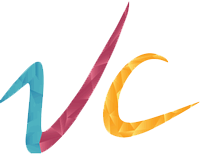- Site Navigation
- About Us
- Meet the Team
- Join us
- Job search
- News
- Contact us
- Our Expertise
- Engineering Recruitment
- USA recruitment
- Account
- Login
- Register
- Upload CV
- Submit A Vacancy
Second Interview advice
You’ve smashed your first interview and now you’ve been invited back for a second - Congratulations! Even though it’s fairly safe to say that the interviewer and hiring managers are interested in you, that doesn’t mean that it’s time to put your feet up. You’re now entering the final stages of the hiring process and competition will be fierce, so you need to invest as much time into preparing for this secondary interview as you did the first.
To say second interviews are varied is a slight understatement. Every organisation has its own second interview format, which can range from group tasks to delivering a presentation to meeting the company’s CEO. Some will result in verbal offers and salary negotiations, whereas others can lead to third, fourth or even fifth stage interviews. Despite the format never being quite the same, at its core, a second interview will offer a more in-depth discussion about the role and how you will operate within this particular organisation.
So if you’re feeling nervous about your upcoming second interview, we’ve got you covered! Here are our top tips for getting yourself second interview ready to help you outshine your competition.
Ask for feedback
Even though you clearly performed well during your first interview, that doesn’t necessarily mean that there’s no room for improvement. Unfortunately, it can be difficult to determine which areas may need fine-tuning all on your own. You might think that you nailed your elevator pitch, when in fact it needs a bit of work. Equally, you might have given a few answers you thought were terrible, but that your interviewer thought was spot-on.
With this in mind, it can be beneficial to get in touch with either your interviewer, the company’s HR team or the recruiter you’ve been in contact with to get some feedback on the strengths and weaknesses of your previous interview. This can be extremely eye-opening and give you a strong indication of which aspects of your interview technique and answers that you can work on.
If you don’t find their feedback that insightful, practise your pitch and possible interview answers in front of a close friend or family member to get their input instead.
Find out what the format is
As we explained before, second stage interviews can come in a variety of shapes and sizes. If you want to make sure you enter the room feeling prepared and confident, you need to know what format your interviewer is planning on using. So if you haven’t heard from them since your last chat, get in touch as soon as possible to find out if you need to do anything.
Remember, emails and messages can easily get lost, undelivered or deleted by accident. It could be that they’ve tried to get in touch and you just didn’t receive their messages. This is why you should always take the time to double-check rather than turning up and being embarrassed.
Always give yourself enough time to prepare the required work or questions that your interviewer has asked of you and never leave it to the last minute. Even if they don’t want you to do anything, getting in touch can still work in your favour by helping to strengthen your rapport with your interviewer- plus you may get the odd titbit or advice on what they’re looking for during this next stage of the process. 
Prepare new end-of-interview questions
End of interview questions are just as important in your second interview as they are in your first. But that doesn’t mean you can just repeat the same questions you’ve already asked. Your interviewer should have already provided you with the answers to these questions during your first interview so it could look unprofessional if you continue to ask the same thing time and time again. Remember this second interview is a step up from the first, so your questions should be the same!
To come up with some new questions, use your first interview as inspiration. Think back about what you learnt about your interviewer, the company and the role itself and use this to establish some possible questions to ask. You should also try and find out who else might be sitting in on your second interview and do some research on them, using LinkedIn and the company website. This should also provide you with a wealth of questions to ask at the end of the session.
You’re bound to impress the interviewer if they can see that you’ve stepped up your game and prepared a new set of questions that aren’t the run of the mill and build on what they shared during your first interview.
We understand that preparing for a second or even third interview can leave you feeling daunted and overwhelmed. But it’s important to keep in mind that, if the interviewer didn’t think you had something to offer, you wouldn’t have been invited to this next stage. So feel excited and proud to be in the position you’re in but don’t get too complacent. After all, this isn’t necessarily the final hurdle.
- Site Links
- Home
- About us
- Job Search
- Insights
- Join Us
- Meet the Team
- Contact
- Privacy Policy
- Clients
- Submit a Vacancy
- Candidates
- Login
- Register
- CV Upload
- Job Alerts





